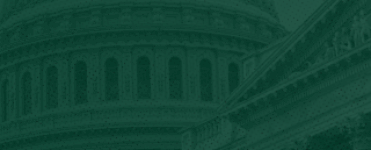
Do 6-year-olds have First Amendment rights at school?
If your house is like mine, the last couple of weeks have been hectic as the new school year begins. And free speech and schools go hand in hand.
Educational institutions are in the ideas business. That’s why the Supreme Court has even referred to our schools as the “marketplace of ideas.”
It’s no surprise, then, that many of the biggest free speech decisions came from conflicts involving our universities and public schools. And major free speech questions continue to arise in our children’s schools.
For example, civil rights nonprofit public interest law firm Pacific Legal Foundation (PLF) is defending the free speech rights of a first grader in California.
Why?
Because after learning about Dr. Martin Luther King, Jr., 6-year-old “B.B.” felt empathy for her and made a drawing of them and two other friends with the words “Black Lives Matter” for her. She was introduced to the phrase by the book and by a picture hanging on a school wall. But then, not knowing the debate about the phrase among adults, she added “all lives” below the phrase.
Her friend took no offense. But when the friend’s mother saw the picture, she contacted the school to complain. B.B. was banned from drawing pictures at school, ordered to apologize in front of the class, and prohibited from participating in recess for two weeks.
Appropriately, B.B.’s mother sued the school district for violating her daughter’s First Amendment rights.
But remarkably, U.S. Central District Court Judge David Carter sided with the school, writing:
Giving great weight to the fact that the students involved were in first grade, the Court concludes that the drawing is not protected by the First Amendment.
While there was no disruption at school or even offense caused to B.B.’s friend, the Court decided that the friend’s “right to be left alone” overcame the diminished First Amendment protection available to a student as young as B.B.
It’s hard to square this decision with 80 years of Supreme Court decisions protecting the First Amendment rights of public school students.
- In West Virginia v. Barnette, the Supreme Court held that public schools can’t force Jehovah’s Witness students to salute the flag and say the Pledge of Allegiance.
- In Tinker v. Des Moines Independent School District, the Court held that public school students “do not shed their constitutional rights to freedom of speech or expression at the schoolhouse gate,” after students were suspended for wearing black armbands to school to protest the Vietnam War.
- And it is well settled that elementary and middle school students have the First Amendment right to organize and participate in religious and other student groups at school or afterward.
Today’s students are tomorrow’s teachers, legislators and judges. So, it’s critically important that public schools teach them the value of the First Amendment.
We’ll be watching this case carefully as PLF appeals to the Ninth Circuit Court of Appeals.
Represented by Pacific Legal at no charge, B.B. & her mother are fighting back. They’ve asked the Ninth Circuit Court of Appeals to reverse the lower court’s dangerous ruling & restore the free speech rights of all students, including first-graders. https://t.co/DBjMVBF12c
— Pacific Legal 🗡⚖️ (@PacificLegal) July 16, 2024
But let’s pivot to some good news.
Our friends at The Becket Fund for Religious Liberty, a nonprofit public interest law firm, won a significant victory for students’ freedom of association against the District of Columbia.
The Fellowship of Christian athletes club at a D.C. public school was kicked off campus after a complaint from a part-time baseball coach who argued that there was “no place for a group like FCA in a public school.” A federal district court in DC held that the school violated the First Amendment and the Religious Freedom Restoration Act, ordering FCA back on campus.
And the good news for free speech doesn’t end there.
Two weeks ago, the University of Texas Board of Regents amended its free speech policy to reaffirm its commitment to free speech, including adopting institutional neutrality:
Because The University of Texas (UT) System is committed to free and open inquiry in all matters, it guarantees all members of the UT System the broadest possible latitude to speak, write, listen, challenge, and learn. Except insofar as limitations on that freedom are necessary to the functioning of the UT System, the UT System and the UT institutions fully respect and support the freedom of all members of the UT System community “to discuss any problem that presents itself.”
Of course, the ideas of different members of the UT System community will often and quite naturally conflict. But it is not the proper role of the UT System or the UT institutions to attempt to shield individuals from ideas and opinions they find unwelcome, disagreeable, or even deeply offensive.
Nor is it the role of the UT System or UT institutions to adopt positions based on political or social passions or pressures. Institutions should not, in their official capacity, issue or express positions on issues of the day, however appealing they may be to some members of the university community. This has no bearing, of course, on freedom of speech of individuals in the university community, and only relates to official university statements, functions, ceremonies, and publications.
The University of Texas System is the largest university system in Texas, with 9 universities and 5 independent health institutions and more than 250,000 enrolled students. The Foundation for Individual Rights and Expression (FIRE) has advocated for policies like this one, ensuring that the university’s role is to facilitate student debate, not to join it on one side.
One final piece of good news, this time from Tennessee.
According to the New York Times, Vanderbilt University welcomed freshmen to campus by emphasizing that the university would not tolerate free speech violations that disrupted the learning environment:
Less than 10 minutes had passed before Daniel Diermeier, Vanderbilt University’s chancellor, told hundreds of new students what the school would not do…
Before the hour was up on Monday, he added that Vanderbilt would not tolerate threats, harassment or protests “disrupting the learning environment.”
This month, Vanderbilt required all first-year undergraduate students to attend mandatory meetings about the university’s approach to free speech, with the hope that clear expectations — and explanations for them — would help administrators keep order after protests rocked American campuses toward the end of the last academic year.
Three years ago, I wrote a piece advising colleges how they can not only protect First Amendment rights on campuses but also ensure student and faculty understand those rights.
It’s encouraging to see major universities renewing their commitments to these principles.
This morning, FIRE released its latest College Free Speech Rankings. These rankings have been a useful tool in helping students, parents, and faculty understand the free speech climate on different campuses.
But I’d argue one reason for these recent actions at Texas and Tennessee is that the work of FIRE and others is incentivizing colleges to change their speech policies for the better.
More to come on the FIRE College Free Speech Rankings, but in the meantime, let’s keep up the pressure!


